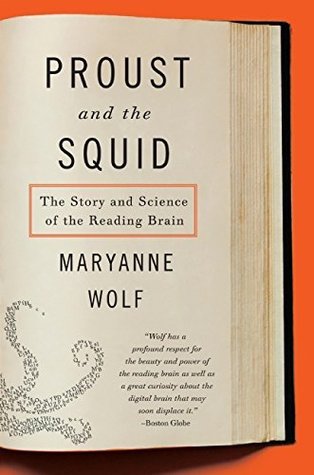Unlike its component parts such as vision and speech, which are genetically organized, reading has no direct genetic program passing it on to future generations. Thus the next four layers involved must learn how to form the necessary pathways anew every time reading is acquired by an individual brain. This is part of what makes reading—and any cultural invention—different from other processes, and why it does not come as naturally to our children as vision or spoken language, which are preprogrammed.
Welcome back. Just a moment while we sign you in to your Goodreads account.


